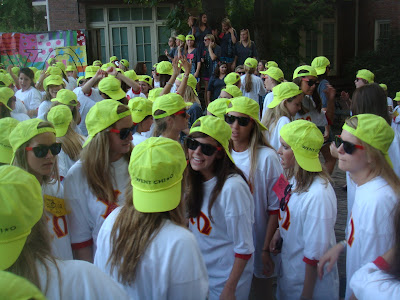
Diversity may be achieved through a variety of methods. Affirmative action in a business environment may create a more diverse workforce. Bussing in public schools may introduce a more diverse student body to a school that previously wasn't. It's a personal decision to choose to become more tolerant of diversity, and the same is true here at Ole Miss. In our anthropology department, becoming educated and more tolerant of diversity is as easy as showing up for one of Dr. Robbie Ethridge’s lectures.
Dr. Ethridge, a cultural anthropologist, author, and Ole Miss professor of anthropology, leads classes that concern a variety of anthropological topics. Her classes range anywhere from studies of the Environmental History of the South, surveys of specific Native American cultures, to graduate research seminars. Despite her wide range of course study, they all concern one thing; diversity.
“By definition, anthropology is the study of diversity. Students who take anthropology courses get exposed to many different cultures and many different kinds of people around the world, ways of thinking about the world, and looking at the world,” said Ethridge.
In her book Creek Country: The Creek Indians and their World, Ethridge explores the cultural significance of the native tribe that called the southeastern United States their home. Some may have even lived around the area where the University of Mississippi is located. While she only explores this one native culture in her book, understanding one culture may help us better understand others.
Maggie Coakley, 21, who is currently taking Dr. Ethridge’s “Native Americans and the Natural World” course here at Ole Miss, feels like classes that cover cultural diversity topics should be required as a means to encourage people to be more open-minded.
“I feel like if more people took classes like this, then they would understand why people around them are different. Maybe they wouldn’t think others are ‘wrong’ because they dress or look differently. It should be required,” said Coakley.
Coakley’s opinion reinforces exactly the idea that Dr. Ethridge is trying to promote through her classes. She thinks that through study of diverse cultures we may understand exactly how we are all different, and then we will finally understand how we are all the same.
“Students who take anthropology come away with a better sense of the diversity in the world and the global forces that unite us all as well. It’s not just the diversity here, it’s the commonalities,” said Ethridge.
Despite the immense geographical distances that separate different cultures, the study of these people, thousands of miles away, may help us to better understand the differences of someone that is sitting right next to us.












